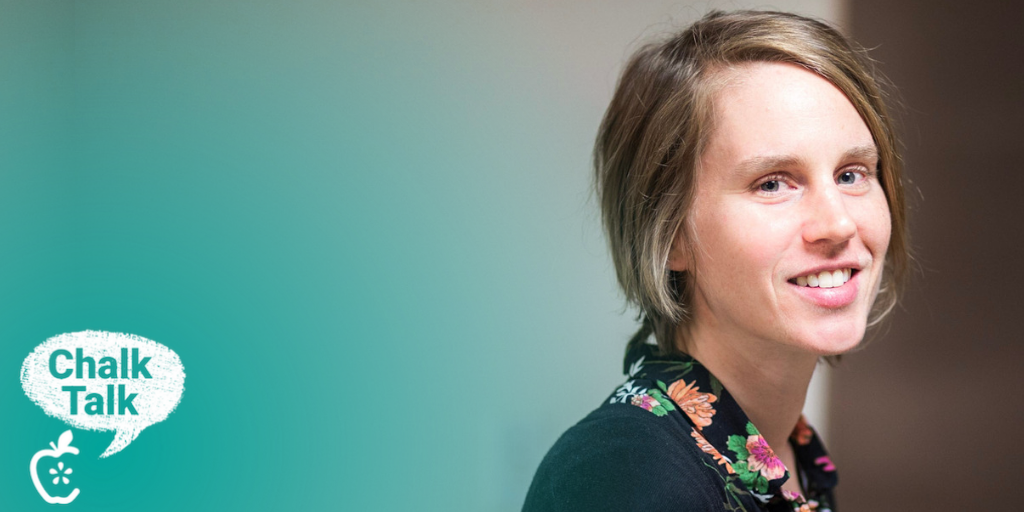January 8, 2019
Chalk Talk: Theresa Thalhamer

Teaching is the best job out there. Where else can you spend the day with silly, eager children excited to learn the subject you are most passionate about, all while making a difference?
But we all know that doesn’t just happen. With hard work, experience, and luck, you’ll have some classes that look like this on a regular basis. In reality, every single teacher has those days or classes that don’t feel like the best place to learn, and some new teachers might see this description as an impossible fantasy. In the end, this authentic student engagement all comes down to school climate.
In Boston, a team of Educators for Excellence teachers like Theresa Thalhamer are working to make sure every classroom has this positive learning environment. For her, school climate is about creating a space where students can freely express themselves knowing their teachers and classmates will listen. She tries to create that space in her science classes, but it’s not easy.
For Boston teacher Theresa Thalhamer, school climate is about creating a space where students can freely express themselves knowing their teachers and classmates will listen.
“I have had situations where students don’t feel comfortable sharing their thoughts because they didn’t want to be called stupid or struggled with the emotional turmoil from their outside lives. If kids don’t feel comfortable, safe, and heard in the school – seen as a human – then they don’t want to show up, physically or mentally.”
But positive school climates can’t exist unless decisionmakers meaningfully engage educators. Just like their students, teachers need to be heard in their schools and beyond. This is especially true when things aren’t going well.
“There’s a danger of slipping into a negative mode when your kids aren’t learning or behaving, and you spiral down. Part of this problem is that teachers see a system that is difficult to change, and worse, we see ourselves as too powerless to make a difference beyond our classrooms.”
So she and 11 of her colleagues decided to give their peers a voice. They gathered over 500 Boston teachers’ input through focus groups and surveys to find out what teachers need to create a positive school climate. Now, they are analyzing the results and researching best practices to author a paper outlining the solutions that will make sure the “perfect classroom” isn’t just a fantasy.
But it doesn’t end there. Theresa is going to speak out at every level she can – from within her school, her union, and her legislature – so every teacher in her city remembers that they are agents of change.
“It won’t be easy, but we have the power to create change.”
Spread the Word
Share this article with your friends and colleagues on Facebook and Twitter!
Currently Reading
Chalk Talk: Theresa Thalhamer